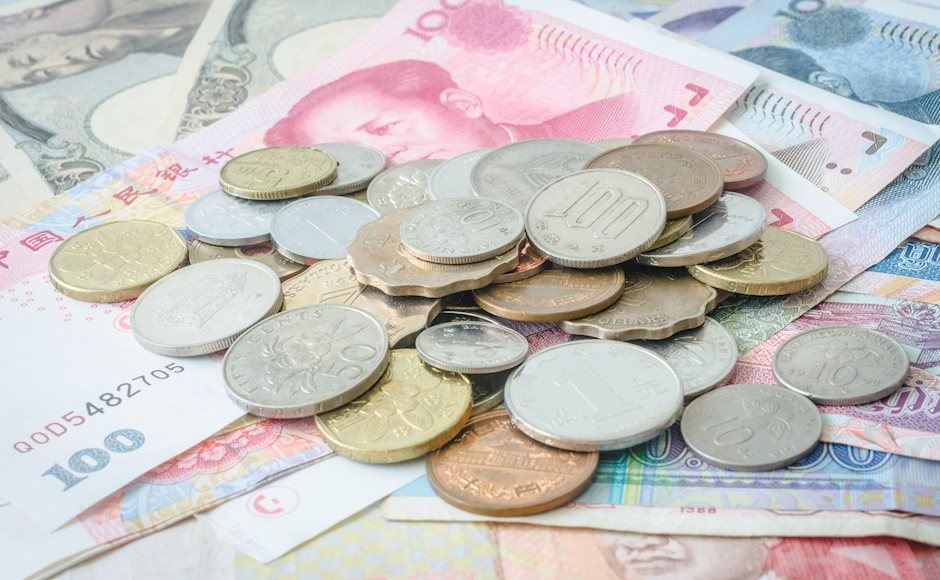Deep State & Financial Powers Worry about Alternative Currencies

As markets continue to gyrate on global trade and tariff threats, precious metals are struggling to capture investor interest.
Lately, the big push in alternative assets has been in Bitcoin. The cryptocurrency has doubled in price over the past two months, though it remains well below its old high.
The full implications of new U.S. tariffs and retaliatory tariffs by China have yet to be reflected in markets. The media has reported on how tariffs could help or hurt particular industries. American farmers, for example, are worried they will suffer most from Chinese retaliation.
President Donald Trump is undoubtedly aware that farmers and rural communities across the heartland were among his strongest supporters in 2016. He can’t afford to lose them if he wants to get re-elected. So he has vowed to have the government buy food crops from farmers and then give it away to poor countries as humanitarian aid.
Where will the money to bail out farmers come from? Nobody seems to know or care. It’s just one small program on top of many others pushing federal spending to record levels.
According to Treasury Department data, the federal government spent $2.57 trillion in the first seven months of the current fiscal year, which began last October. That’s more in real terms than in any previous seven-month period.
Of course, the government sets spending records in nominal terms every year. But what’s particularly alarming about the current run up in federal largesse is that it also sets a record in inflation-adjusted terms, surpassing the previous high in 2011.
This is based on the Bureau of Labor Statistics’ inflation gauge, which does understate some components of real-world inflation.
Wal-Mart, the world’s largest retailer, is often a good indicator of inflation trends. Wal-Mart officials are currently warning that consumers will face higher prices on a wide variety of goods as a result of Trump’s tariffs.
Although few economists see a major inflation problem emerging because of trade wars, things could escalate quickly.
China has already begun the process of unloading Treasuries and reducing its dollar reserves. Perhaps this will push the Federal Reserve closer to launching another Quantitative Easing program, as President Trump has called for.
Others in Washington are worried that the United States dollar could ultimately lose its dominant status in international trade. The Deep State and the head honchos of the banking system will do almost anything to make sure the Federal Reserve system continues to rule the financial world.
Wars have been waged to preserve dollar hegemony, and now some members of Congress apparently think that the dollar is vulnerable to a free market in cryptocurrencies.
Democrat Congressman Brad Sherman is leading a legislative campaign to ban cryptocurrency outright. In his latest verbal attack on digital coins, Sherman made it clear that his battle is an ideological one – intended to defeat the liberty movement and protect entrenched political and financial powers from competition.
Rep. Sherman: I look for colleagues to join with me in introducing a bill to outlaw cryptocurrency. If you look at the advertising for the boosterism of cryptocurrency, it reads like something between Libertarianism and Anarchism.
An awful lot of our international power comes from the fact that the dollar's the standard unit of international finance and transactions, clearing through the New York Fed. And it is that the announced purpose of the supporters of cryptocurrency to take that power away from us.
That’s quite an amazing and honest admission there from a Deep Stater, something that should give everyone pause.
Cryptocurrencies in their present form still have many flaws that will likely prevent them from supplanting national fiat currencies on their own.
Fraud and cyber-attacks on crypto exchanges remain persistent problems. Price volatility also continues to be extreme. Bitcoin is far from a stable store of value.
And on a fundamental level, it’s impossible to assign any kind of fair value to Bitcoin. Having no tangible backing and no legal tender status, its value is based entirely on the digital network in which it exists.
But as we know with all technological innovations, old technologies eventually go obsolete. Will Bitcoin even be technologically viable decades from now? Or will it be politically destroyed first? These are questions anyone should ask before speculating in cryptocurrency.
It’s an entirely separate asset class from hard money – gold and silver. While the prices of precious metals may lag behind newer, flashier assets over any given period, hard money has proven to outlast all fiat currencies, while serving as a store of value over decades and even centuries. Digital currencies have no such track record.
To receive free commentary and analysis on the gold and silver markets, click here to be added to the Money Metals news service.
Author

Mike Gleason
Money Metals Exchange
Mike Gleason is a Director with Money Metals Exchange, a national precious metals dealer with over 500,000 customers.
















